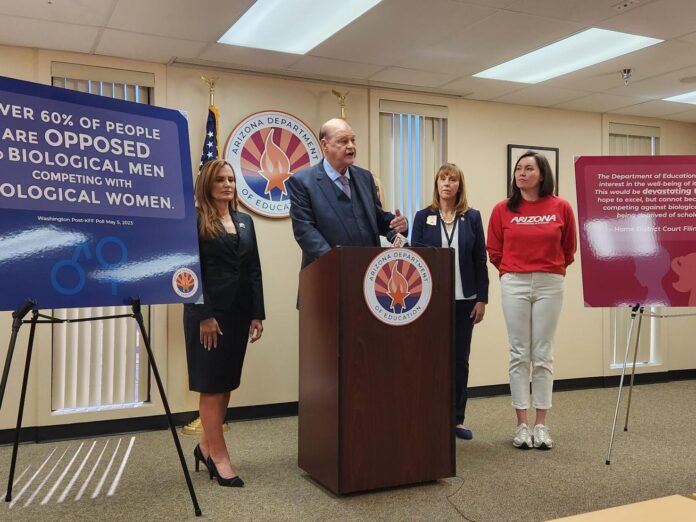Arizona Superintendent of Public Instruction Tom Horne is promoting an estimate of Empowerment Scholarship Account costs that shows they would save taxpayers money, but not everyone agrees that it would.
Horne released a statement Tuesday in support of an analysis done by Dr. Matthew Ladner, director of the Arizona Center for Student Opportunity, who said the popular program would likely not hit the $944 million mark estimated by the governor’s office, which said would result in a $320 million budget shortfall in the next fiscal year.
“I agree with Dr. Ladner that the cost of the ESA program will never be $943 million for reasons which I will explain. But even if it were, that would be only about one percent of the fiscal 2022 state budget of $80.5 billion,” Horne said.
The ESA program allows parents to use a roughly $7,200 state credit that was meant for their student’s public school education on private school costs or homeschooling material as long as the state approves the items.
“Taxpayers pay both state and local taxes. Combined, they contribute about $13,000 per student for every student in public school,” Horne added. “If a student leaves a public school for a private school, and obtains a payment from ESA of $7200, that is a savings of about $6000 per student to the taxpayers.”
Horne also said that the state would still financially benefit if a student in private schools decides to use ESA funds, as they would presumably have to ditch their private school tax credit, which tops out at $1,459 for joint filers.
The program, signed into law by former Gov. Doug Ducey last year, was expected to cost far less but became so popular that its cost projections skyrocketed. According to the Joint Legislative Budget Committee in January, they only projected that fiscal year 2024 would have 52,500 students in the program, which they estimated would have a price tag of $376 million.
Ladner’s analysis suggests that the cost likely is not as high as the governor’s office anticipates, but even if it is, it would only account for a small portion of the state’s budget.
Democrats have criticized the program because they argue it would reduce funding for public education in a major way.
“The current school voucher program is unsustainable. Even Superintendent Horne’s own analysis has shown that school vouchers will cost Arizona taxpayers $900 million next year,” Christian Slater, the spokesman for Hobbs, said in a statement to The Center Square. “Governor [Katie] Hobbs will continue to fight for transparency and accountability over the runaway spending to ensure taxpayer dollars are being put to good use. Middle-class Arizonans should not foot the bill for private school tuition.”
Legislative Democrats, including Sen. Christine Marsh, have railed against vouchers, and Marsh wrote in an op-ed for The Arizona Republic Monday that it would create fiscal issues for the state.
“We can argue the merits of school choice, and if the state had sufficient funding to support two different systems, there might not be much argument about the issue,” she wrote. “However, the reality is that universal ESAs will cost the state more — accounting for more than 30% of all new spending on K-12 spending in the fiscal 2024 budget, which previously did not include general fund dollars for non-state aid district students, homeschool students, and existing private school students.”
Republished with the permission of The Center Square.














